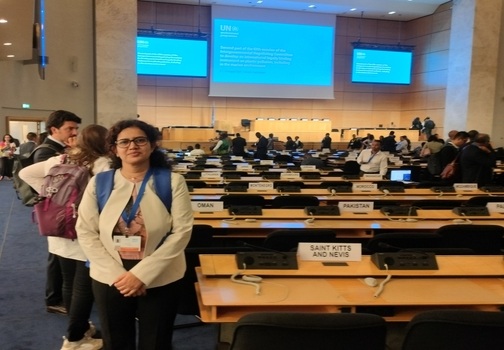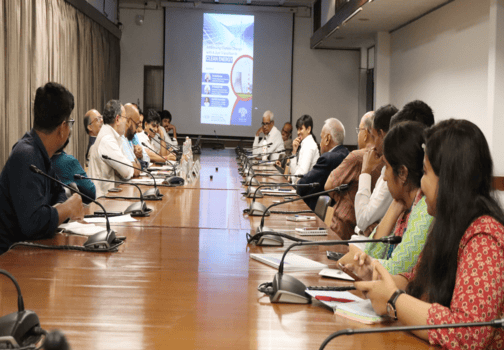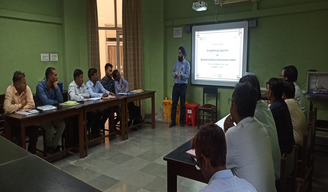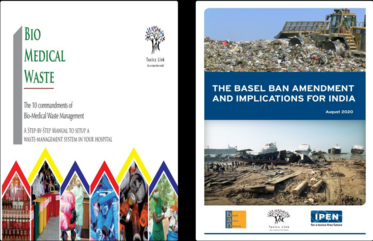WASTE TO ENERGY PLANTS
GOVERNMENT OF INDIA
MINISTRY OF NEW AND RENEWABLE ENERGY
LOK SABHA
UNSTARRED QUESTION NO. 1454
ANSWERED ON 10.02.2022
WASTE TO ENERGY PLANTS
1454. SHRI S. JAGATHRAKSHAKAN
Will the Minister of NEW AND RENEWABLE ENERGY be pleased to state:
(a) whether there are very few waste to energy plants despite solid waste generation of 1.19 lakh
tonne/day and a favourable climate for the sector;
(b) if so, the details thereof;
(c) the details of initiatives that have been taken/being taken by the Government to address the said issue; and
(d) if not, the reasons therefor?
ANSWER
THE MINISTER OF NEW & RENEWABLE ENERGY AND POWER
(SHRI R.K. SINGH)
(a)&(b) As on 31.01.2022, Waste to Energy plants of total capacity of 117.1 MW have been
installed for power generation in the country. These plants utilise around 9250 TPD Municipal
Solid Waste (MSW). The details of such projects are given at Annexure.
(c)&(d) To promote installation of Waste to Energy plants, followings steps have been taken:
- i) Eight Biogas Development and Training Centers (BDTCs) have been established at India’s
premier Institutions to provide Technical Assistance, R & D, Testing and Validation of
New Biogas Models / Designs, field inspections of biogas plants, and training and skill
development.
- ii) Ministry of New and Renewable Energy’s autonomous institute National Institute of Bio
Energy (NIBE), Kapurthala is providing capacity building through M. Tech program on
Renewable Energy in joint collaboration with NIT Jalandhar. The institute has also signed
MOUs with CSIR-CMERI, Junagarh Agriculture University, Indian Biogas Association
and other prominent institutes for research in biogas, solid waste management and other
bioenergy aspects.
iii) NIBE is also collaborating with US Energy labs, Pacific Northwest National Laboratory
and Lawrence Berkeley National Laboratory, for research work in bioenergy sector.
- iv) Under the amended Tariff Policy-2016, provision has been made for Distribution
Licensee(s) to compulsorily procure 100% power produced from all the Waste-to-Energy
plants in the State.
- v) Ministry of Road Transport and Highways amended the Central Motor Vehicles Rules,
1989 in June 2015 and included the provisions for usage in motor vehicles Bio-CNG
produced from waste (including MSW).
- vi) National Policy on Biofuels-2018 promotes the production of Bio-CNG and other
biofuels.
vii) Government announced Sustainable Alternative Towards Affordable Transportation
(SATAT) Initiative, under which Oil Marketing Companies (OMCs) purchase Bio-CNG
produced from waste including municipal solid waste.
viii) Certificates for availing concession on custom duty are being issued by the Ministry of
New and Renewable Energy for import of machinery and components required for initial
setting up of projects for generation of Power and Bio-CNG from non-conventional
materials including municipal waste.
- ix) Ministry of New and Renewable Energy has been implementing a Programme on
Energy from Urban, Industrial, Agricultural Wastes/Residues and Municipal Solid
Waste. The Programme which was valid till 31st March, 2021, has been recommended
for continuation by EFC for the period FY 2021-22 to 2025-26 only for meeting the
already created liabilities. Thus, no new projects after 31.03.2021 are to be sanctioned.
Central Financial Assistance (CFA) under the programme for setting up Waste to Energy
plant is granted on successful commissioning and performance testing.
- x) Implementation of Solid Waste Management Rules 2016 to ensure the non-recyclable
waste having calorific value of 1500 Kcal/kg or more to be utilized for generating energy
through RDF.
- xi) In Swacch Bharat Mission (Urban) 2.0 setting up Waste to Energy projects for Million
plus cities having waste generation more than 500 TPD has been made integral part under
solid waste management component. The Waste to Energy projects are proposed to be
developed on regional/cluster basis to ensure technical and financial sustainability.
xii) The Waste to Energy projects are proposed to be developed by State/ULBs as per their
requirements either on EPC or PPP mode. Ministry of Housing and Urban Affairs
provides project based assistance from the budgeted state allocation on case to case basis.






